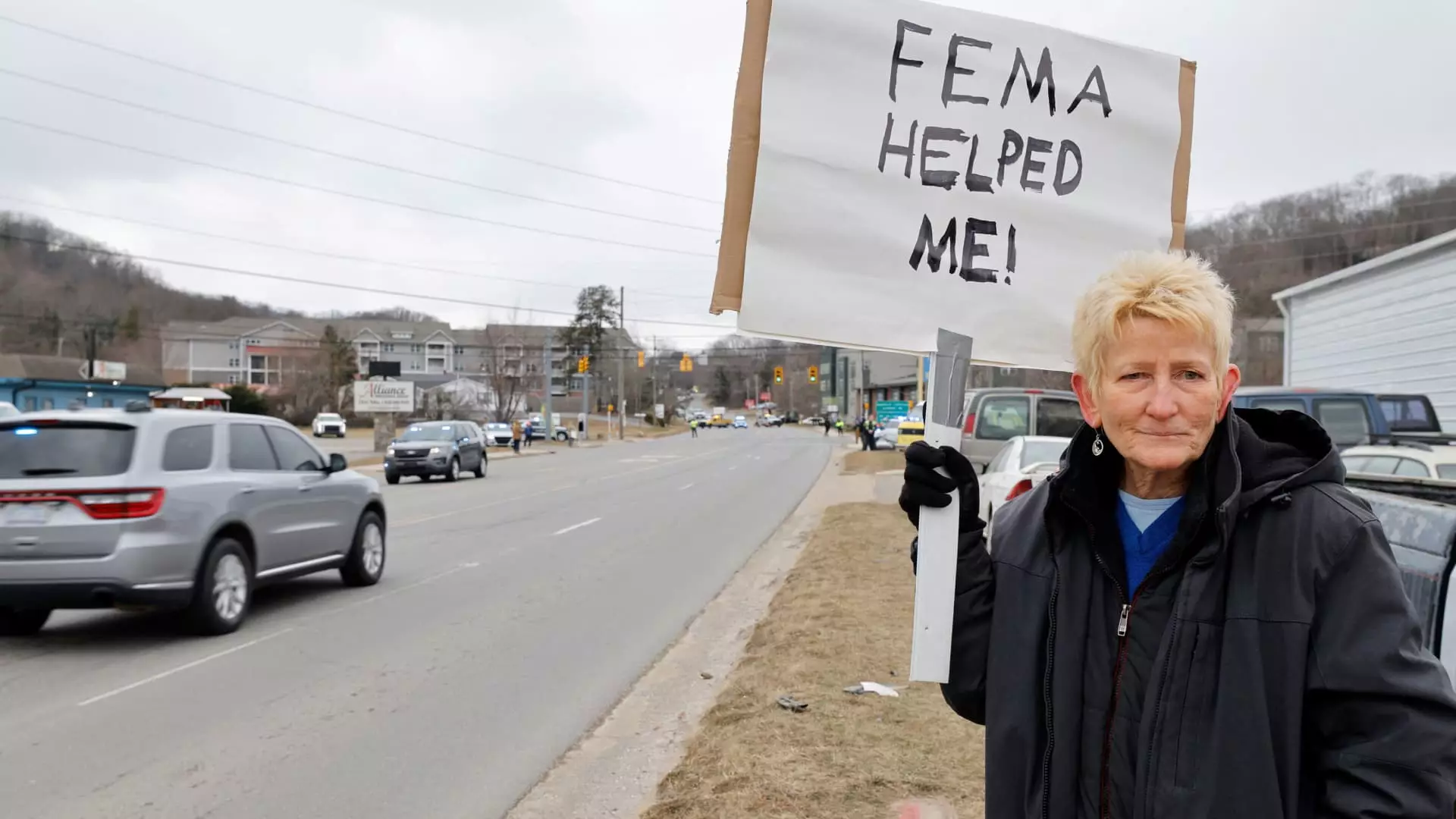In a decision that many experts warn could put countless homeowners at risk, the Trump administration’s intentions to scale back the Federal Emergency Management Agency (FEMA) present an alarming departure from the long-established norms of disaster recovery. The agencies designed to safeguard Americans during natural disasters are supposed to provide a safety net—a reassuring presence for citizens who find themselves facing the devastation of fires, hurricanes, and floods. However, the administration’s vision is not just about a reboot; it is a potential dismantling of foundational emergency response mechanisms that have been vital over the years.
FEMA was never a replacement for personal insurance, according to Charles Nyce, a highly regarded professor in risk management. The agency was designed to supplement individual policies, not serve as a fallback plan when personal insurance fails. Thus, it creates an inherent risk when support from FEMA shrinks. The notion that the administration aims to phase out this essential arm pointing to a potentially diminished role in emergency management is not just reckless; it jeopardizes lives and property.
A Shift from Aid to Individualism
In a recent press briefing, President Trump hinted at significant reform to FEMA, including a more direct involvement from his office when issuing disaster relief. The implications are disconcerting; instead of ensuring an organized and systematic approach to disaster response, the reins may be handed over to unprepared states left to cope with rising costs amidst their mounting financial challenges. Such sweeping changes run the risk of creating an uneven playing field concerning disaster preparedness and recovery, which many local governments may not be equipped to handle.
Moreover, the proposed $646 million cut to FEMA’s budget in fiscal year 2026 will only exacerbate our collective ability to respond to natural disasters. Critics, such as Senator Raphael Warnock, have rightly decried these actions as haphazard and irresponsible, indicating a troubling trend of diminishing resources for disaster management at a time when climate change amplifies the risks we face. It’s a dangerous gamble to expect states to fulfill the enormity of responsibilities previously held by a federally coordinated agency.
Individuals Left to Fend for Themselves
As the federal government steps back, the onus for preparedness falls more heavily on citizens. Nyce argues that the downward trend could lead to societal complacency regarding disaster readiness, pushing individuals into a false sense of security. With budgets being shrunk and programs like disaster mitigation grants dissolved, individual homeowners must begin to shoulder responsibilities traditionally borne by government institutions. This is not merely a logistical inconvenience; it’s a dangerous reality that could leave vulnerable populations without adequate support when disaster strikes.
The current average FEMA individual assistance grant amounts to a meager $3,522—a few weeks’ worth of cost for temporary housing. Adding to this sobering statistic is the reality that many victims of disasters find themselves underinsured. Those who believe that FEMA will always step in after a federally declared disaster may be setting themselves up for severe financial distress. As the agency scales back, individuals must look more critically at their insurance policies, ensuring they possess the necessary coverage—including flood insurance, which is vital in many parts of the country.
A Call for Individual Responsibility
The shifting landscape toward increased personal responsibility in disaster preparedness demands immediate action. For many, it may require uncomfortable discussions with financial advisors or agents regarding insurance products that can cordon them off from potential vulnerability. As FEMA’s role diminishes, the recommendation for citizens is clear: gather essential supplies to sustain themselves for several days without federal assistance.
Stockpiling food, water, batteries, and crucial documents in a safe location are now not just smart preparations but essential survival strategies. Understanding that one may have to fend for themselves in times of crisis is an unsettling reality, but it’s a necessary mindset shift as federal resources dwindle.
This experiment-like approach to scaling back FEMA does not just foster an environment where government bailouts are far less assured; it creates a society where self-reliance must prevail over trust in the structures meant to protect us. It’s a troubling landscape, shifting from communal virtue to isolated survival, and the implications of these changes are not merely bureaucratic—they affect the lives and well-being of everyday Americans. In the face of advancing climate threats and diminished federal support, the time to prepare is now, albeit with uncertainty cast over the collective safety net we once thought secure.

